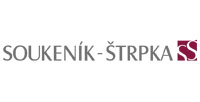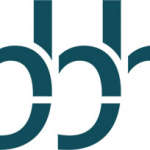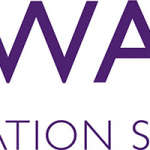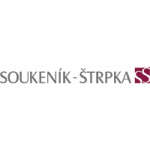SOUKENÍK – ŠTRPKA discusses the importance of witness statements and preparing witnesses in international arbitrations
Introduction
The importance of witness evidence in international arbitrations is undisputable. Although it is not generally forbidden for the arbitration tribunal to order appearance of a witness, more often the witnesses are involved in arbitration proceedings on the parties’ request.
It may be concluded that the witness evidence comprises of two stages:
a) written witness statements; and
b) cross-examination of witnesses.
With respect to witnesses appointed by the parties, counsels play key role in both of the aforementioned stages in terms of their preparation.
Witness statements
As per general rule, the witnesses should be interviewed and their written witness statements prepared as early in the proceedings as possible. This allows the party to further assess a case at an early stage of preparation of parties’ written submission.
As the ICC Commission held in its report regarding the ‘Accuracy of Fact Witness Memory in International Arbitration’, there are different purposes of fact witness testimony, including:
(i) proving disputed facts;
(ii) explaining documents;
(iii) providing context of the case; and
(iv) providing technical explanations.
In the first place, party to the arbitration (together with its counsel) shall decide which of these issues should be proven by the witness evidence to determine potential witnesses for the relevant case. Relevant witness may be any person including employees, officers and main representatives of the party (as provided by the Art. 4.2 of the IBA Rules).
At this stage, experienced counsel would help the client with assessment of witness suitability.
As soon as the range of potential witnesses has been concluded, stage of witness interviews shall commence. Unless peremptory rules of lex arbitri provide otherwise, the counsel of a party shall interview witnesses and discuss their prospective testimony with them (see Art. 4.3 of the IBA Rules).
The witness shall not be allowed to discuss its testimony with other witnesses nor to read other witness statements.
Prior to interview, it is advised to provide the witness with a list of questions. This would help the witness to better express its own perception of the facts. Questions asked by counsel should allow the witness to respond freely – thus, questions shall be open. It is recommended to show relevant documents from the time of the event to the witness in order to refresh his/her memory.
The witness shall not be allowed to discuss its testimony with other witnesses nor to read other witness statements. Such practice is considered unethical (potentially contravening lex arbitri) and may and probably will backfire at the cross-examination. Counsel shall notify the witnesses in this regard to protect its client’s interests.
During preparation of witness statements, common structure of witness statement pursuant to Art. 4.5 of the IBA Rules shall be respected.
Preparing witness for cross-examination
Unprepared witness with lack of experience with cross-examinations may feel inconvenient and unmanageable pressure which affects his/her testimony and, ultimately the position of the party.
For such reasons, witness preparation is desirable.
As there is just a limited regulation for witness preparation in the arbitration laws (either statutory or institutional) or no regulation at all, ethical rules for counsels of different jurisdictions would apply.
Based on different approaches in various jurisdictions, the arbitration practice distinguishes between witness coaching and witness familiarisation.
Witness coaching vests in discussion of the facts and content of the evidence with the witness prior to cross-examination and in preparation of witnesses on what they should say at the oral hearing. Apart from the US and a few other jurisdictions, this practice is unlawful in most of the jurisdictions, including countries of Central Europe and the UK.
Witness familiarisation relates to explanation of practical aspects of cross-examination (eg sequence of cross-examination, responsibilities and roles of various persons present at the hearing). In relation to recent virtual hearings, the witness may also be instructed in terms of technical preparation and rules of the virtual hearing. Familiarisation may also include mock cross-examination (refraining from use of the facts of the case at hand). Witness familiarisation however shall not intervene to the content of witness evidence in any way.
Pursuant to internal rules of the Slovak Bar Association, the counsel shall not influence the witnesses. However, it is generally accepted that the counsel may interview the witness about facts and relevant documents and that it may explain practical aspects of cross-examination to the witness. The counsels in Slovak Republic are allowed to carry out witness familiarisation; witness coaching is not permitted.
Austrian lawyers’ ethic code stipulates it is unethical to unduly influence a witness. Witness familiarisation as such is not prohibited. However, any attempt to convince the witness to give false testimony may result in criminal liability.
In Czech Republic, pursuant to ethical code of Czech attorneys, it is not possible to submit false or misleading evidence. Witness coaching is forbidden.
Lastly, witness familiarisation should be carried out by the counsel (unless the counsel would be precluded in particular jurisdiction – eg, in the UK as held in Momodou case) or by a firm specialised on witness familiarisation.
Selected arbitration cases
- Representing company operating in road sector in construction arbitration (2021 ICC Rules; case value: EUR €400m; co-operation with Simmons & Simmons);
- Representing Ministry of Transport and Construction of the Slovak Republic in ICC arbitration arising from delay of the PPP project, EOT and increased costs (2017 ICC Rules; case value: EUR €1.9bn; co-operation with Eversheds Sutherland);
- Counsel to a state-owned entity in respect to ICC arbitration arising from compensation for damage dispute (2012 ICC Rules; case value 700m);
- Counsel to the Slovak Republic in investment treaty arbitration based on a BIT, arising from the investment in the textile sector (UNCITRAL rules; case value: EUR €290m);
- Local counsel to the major international law firm in investment treaty arbitration based on a BIT, arising from health insurance (UNCITRAL rules; case value: EUR €1bn);
- Representing of the National Council of the Slovak Republic in six major court disputes (partially linked to investment arbitration proceedings) with foreign investors (cases value in total: EUR €600m).
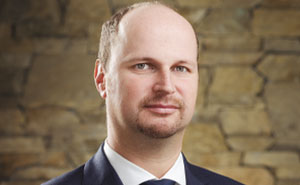
David Soukeník, partner

Peter Štrpka, partner

Lukáš Štefánik, head of litigation and arbitration
SOUKENÍK – ŠTRPKA is a leading law firm in Slovak Republic
Tel: +421 2 322 02 111
E: akss@akss.sk







